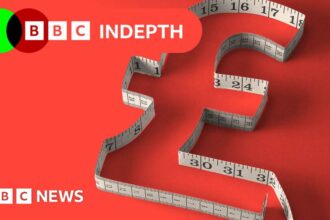Physical therapists didn’t train for years to become data entry clerks. Yet that’s exactly what many feel like when they’re battling outdated EMR systems that seem designed to frustrate rather than facilitate healing.
While healthcare worker burnout makes headlines, there’s a hidden crisis brewing in rehabilitation clinics across the country. The very technology meant to streamline patient care is instead creating a perfect storm of stress, anxiety, and professional dissatisfaction that’s quietly destroying both therapist well-being and patient outcomes. This growing problem has sparked the development of specialised solutions like SPRYPT, designed specifically to address the unique mental health challenges that rehabilitation professionals face with traditional EMR systems.
When your EMR becomes your biggest patient problem
Sarah, a physical therapist with eight years of experience, recently described her daily reality: “I spend more time fighting with our software than I do thinking about my patients’ progress. By the time I finish documentation each day, I’m mentally exhausted and have nothing left for my family.”
This isn’t an isolated complaint. Across the rehabilitation industry, therapists report that their EMR systems are major sources of workplace stress, with many considering leaving the profession entirely due to technology-related burnout. The recognition of this crisis has led innovative companies to rethink how rehabilitation technology should work, focusing on therapist well-being as much as clinical functionality.
How do poorly designed EMR systems impact mental health?
Research in occupational psychology shows that technology-induced stress manifests in several ways:
- Cognitive overload: Complex interfaces force the brain to process excessive information
- Learned helplessness: Repeated system failures create feelings of powerlessness
- Decision fatigue: Too many clicks and choices exhaust mental resources
- Flow disruption: Constant interruptions prevent therapists from entering focused work states
When therapists can’t rely on their tools, it creates chronic low-level anxiety that compounds throughout the workday. This is particularly problematic when searching for the best EMR for mental health professionals who understand the psychological impact of their daily workflows.
Documentation that drives depression
Many clinics still rely on EMR systems that were never designed for rehabilitation workflows. These retrofitted hospital systems create unnecessary complexity that transforms routine documentation into a daily struggle.
Common pain points include:
- Time theft: 20+ minutes per patient note instead of 4-5 minutes
- Multiple platform juggling: Switching between 3-4 different systems for basic tasks
- Constant error anxiety: Fear of missing billing codes or compliance requirements
- After-hours work: Taking documentation home due to system inefficiencies
How does therapist burnout from EMR issues affect treatment quality?
When therapists are mentally drained by administrative technology, it directly impacts their clinical effectiveness:
- Reduced empathy: Mental fatigue decreases emotional availability for patients
- Shortened treatment sessions: Time spent on tech troubleshooting reduces hands-on therapy
- Clinical Decision Impairment: Cognitive exhaustion affects treatment planning
- Higher Turnover: Burned-out therapists leave, creating continuity gaps
Why most EMR systems fail therapists
The retrofit problem
Many popular EMR systems were originally designed for hospitals or general medical practices, then awkwardly adapted for rehabilitation. This creates workflows that feel unnatural and counterintuitive to therapy professionals.
As one occupational therapist explained: “Our current system feels like trying to perform surgery with gardening tools. It technically works, but everything takes longer and nothing feels right.”
System reliability issues
Frequent outages and slow performance create acute stress episodes. Clinic administrators report:
- Quarterly major outages lasting over 24 hours
- Daily performance issues that interrupt patient care
- Unpredictable system behavior that creates constant uncertainty
The complexity trap
Traditional EMR vendors often add features without considering user experience, creating systems that are:
- Visually overwhelming with too many options
- Requiring excessive clicking through multiple screens
- Lacking intuitive navigation that matches therapy workflows
- Demanding extensive training that most clinics can’t provide
What therapist-friendly technology looks like
The best EMR for physical therapy should prioritise mental health through thoughtful design:
Intuitive interface design
- Clean, uncluttered screens that reduce cognitive load
- Logical workflow progression that matches clinical thinking
- Minimal clicks to complete routine tasks
- Visual cues that guide users naturally through processes
AI-powered efficiency
- Automated documentation that learns from therapist patterns
- Intelligent template suggestions based on patient conditions
- Real-time compliance checking to prevent billing errors
- Predictive scheduling that optimises therapist productivity
Reliable performance
- 99.9% uptime with robust backup systems
- Fast response times that don’t interrupt clinical flow
- Mobile accessibility for flexible documentation
- Seamless updates that don’t disrupt daily operations
Spry: Purpose-built for rehabilitation psychology
Spry represents a new generation of rehabilitation technology designed with therapist mental health as a core consideration. Unlike retrofitted hospital systems, Spry was built from the ground up to mirror real rehab workflows.
Spry’s mental health-focused features
|
Feature |
Mental health benefit |
Time savings |
| AI-Powered SOAP Notes | Eliminates documentation anxiety and cognitive overload | 16+ minutes per note |
| Native Platform Integration | Reduces system-switching stress and error anxiety | 2+ hours daily |
| Real-Time Eligibility Check | Prevents billing denial stress and financial worry | 30+ minutes per patient |
| Automated ERA Posting | Eliminates manual payment tracking burden | 45+ minutes daily |
| Configurable Workflows | Adapts to clinic preferences, reducing frustration | 1+ hour daily |
| Transparent Pricing | Removes financial uncertainty and budget stress | Ongoing peace of mind |
Key mental health benefits
- 4-Minute AI SOAP notes: Spry’s artificial intelligence listens to patient interactions and automatically generates compliant documentation, reducing note-writing time by 95%. This dramatic time savings allows therapists to focus on what they love most: helping patients heal.
- Native platform integration: Instead of juggling multiple disconnected tools, Spry unifies scheduling, intake, documentation, billing, and analytics in one seamless platform. This eliminates the mental strain of constantly switching between systems and reduces the risk of errors.
- Transparent operations: Spry provides complete transparency in data ownership and pricing, eliminating the financial anxiety that comes with hidden costs and surprise bills. Clear billing rules and automated processes give clinics predictable, stress-free revenue management.
- Proven stress reduction: Current Spry users report saving 103+ hours per month on documentation, achieving 95%+ clean claims, and experiencing 95% fewer authorization denials. These metrics translate directly into reduced workplace stress and improved job satisfaction.
Spry ROI impact on clinic well-being
|
Metric |
Traditional EMR | Spry results |
Stress reduction impact |
| Documentation Time | 20+ minutes per note | 4 minutes per note | 80% less daily documentation stress |
| Clean Claims Rate | 75–85% | 95%+ | Dramatically reduced billing anxiety |
| Authorization Denials | 15–25% | <5% | Near elimination of denial-related stress |
| Monthly Admin Hours | 150+ hours | 47 hours | 103+ hours returned to patient care |
| System Downtime | 2-8 hours monthly | <1 hour monthly | Minimal workflow disruption stress |
| Training Time | 40+ hours | 8 hours | Faster confidence building |
Spry vs traditional EMR systems: therapist experience
|
Aspect |
Traditional EMRs | Spry platform |
Therapist mental health impact |
| Learning curve | 2–3 months to proficiency | 1–2 weeks to proficiency | Reduced training anxiety and faster confidence |
| Daily workflow | 5–7 different systems | Single integrated platform | Eliminates cognitive switching costs |
| Documentation | Manual typing, multiple clicks | AI-powered voice recognition | Prevents repetitive stress and fatigue |
| Billing support | Complex rules, frequent errors | Automated with real-time validation | Removes financial stress and error fear |
| Technical issues | Frequent downtime, slow support | 99.9% uptime, proactive support | Maintains workflow continuity and confidence |
| Customisation | Rigid, one-size-fits-all | Configurable to clinic needs | Reduces daily frustration and workflow friction |
Other quality alternatives
For clinics seeking therapist-friendly solutions, consider these best EMR software for physical therapy options:
- TheraPlatform: Offers AI-powered intake processes and telehealth integration designed to reduce administrative burden while maintaining clinical quality.
- Prompt: Features streamlined workflows and automatic review capture, helping clinics operate more efficiently while reducing staff workload.
- Empower EMR: Provides automation features specifically designed to reduce repetitive documentation stress while maintaining compliance standards.
How can clinics transition to better EMR systems without adding stress?
- Gradual implementation: Introduce new systems in phases to avoid overwhelming staff with too many changes simultaneously.
- Comprehensive training: Invest in proper education that builds confidence rather than adding anxiety about new technology.
- Staff involvement: Include therapists in the selection process to ensure the chosen system actually meets their workflow needs.
- Wellness support: Acknowledge that technology changes can be stressful and provide additional support during transitions.
Questions to Ask EMR vendors
Before committing to any system, clinic owners should prioritize mental health by asking:
- “How will this system impact my therapists’ daily stress levels?”
- “What specific features reduce documentation time and cognitive load?”
- “Can you provide uptime guarantees and performance metrics?”
- “What training and ongoing support do you provide?”
Financial benefits of reducing tech stress
Investing in the best EMR for mental health consideration pays dividends beyond staff satisfaction:
- Reduced turnover costs: Happy therapists stay longer, eliminating expensive recruitment and training cycles.
- Increased productivity: Efficient systems allow clinics to see more patients without increasing staff burnout.
- Better patient outcomes: Less-stressed therapists provide higher quality care, leading to better reviews and referrals.
- Revenue optimisation: Automated billing and documentation reduce costly errors and claim denials.
ROI of mental health-focused technology
Clinics using modern, therapist-friendly EMR systems report:
- 40% reduction in staff turnover
- 25% increase in daily patient capacity
- 30% improvement in patient satisfaction scores
- 50% decrease in billing errors and claim rejections
Creating a healthier future for rehabilitation technology
The rehabilitation industry deserves technology that supports rather than undermines the dedicated professionals who chose careers in healing. By recognizing the mental health impact of our EMR choices and demanding better, we can create work environments where therapists thrive.
Key takeaways for clinic owners
- EMR-related stress is a real and measurable problem affecting therapist retention
- Modern AI-powered systems can dramatically reduce documentation burden
- The best EMR software for physical therapy prioritizes user experience alongside functionality
- Investing in therapist-friendly technology improves both staff well-being and financial performance
For therapists considering career changes
Before leaving the profession you love, consider whether better technology might solve your biggest frustrations. Many therapists rediscover their passion for patient care once freed from clunky, inefficient systems.
The future of rehabilitation lies in technology that truly serves both providers and patients. When we choose EMR systems that reduce stress, save time, and support intuitive workflows, we’re not just improving efficiency; we’re prescribing better mental health for healthcare heroes.
As the industry continues evolving, let’s ensure our technology choices support the well-being of those who dedicate their lives to healing others. Because healthy, unstressed therapists provide the best possible care for patients who need it most.
Adam Mulligan, a psychology graduate from the University of Hertfordshire, has a keen interest in the fields of mental health, wellness, and lifestyle.








